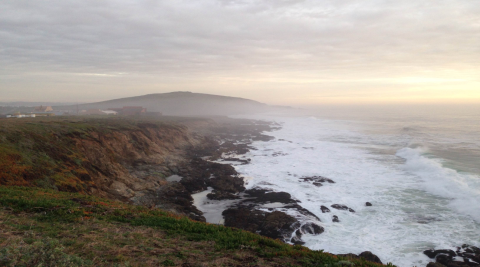Description
Ice nucleating particles (INPs) are a rare subset of atmospheric aerosol that can initiate primary ice formation and thus trigger cloud glaciation. There is a significant gap between our ability to measure INPs and to predict their concentrations and variability in large-scale weather and climate models. Accurate simulation of INPs requires simulation of their major particle sources, as well as representative parameterizations of IN efficiency. Thus, there is a need for measurements of INP concentrations, delineated by particle type, to validate and improve model prediction of INP concentrations. Here we present a novel method for speciating INP concentrations into the relative contributions from dust, sea spray aerosol (SSA), and bioaerosol using single particle measurements. In a field campaign at Bodega Bay (coastal California), we find that bioaerosols were the primary source of INPs between -12 and -20 ?C, while dust was a relatively minor source and SSA did not contribute significantly. We show that recent INP parameterizations for dust and SSA accurately predict ambient INP concentrations for these particle types. Finally, we use the speciated INP concentrations to evaluate the simulation of INPs at Bodega Bay, using a Lagrangian approach to connect the locally-observed aerosol with regionally-widespread emissions parameterizations. We find that we can skillfully simulate dust and SSA INPs, but not bioaerosol INPs. This points to a need for additional research to identify the major factors controlling the emissions and INP efficiency of bioaerosol INPs in order to develop improved parameterizations and enable their improved representation in models.

